Balancing Wellness: TMD Telehealth’s Approach to Hypothyroidism Care
Introduction: Hypothyroidism, a common condition affecting the thyroid gland, can impact various aspects of your health. At TMD Telehealth, we understand the significance of thyroid health and offer comprehensive care for individuals managing hypothyroidism.
Understanding Hypothyroidism:
Hypothyroidism occurs when the thyroid gland doesn’t produce enough thyroid hormones, affecting metabolism and overall bodily functions. TMD Telehealth provides specialized care to support individuals in managing this condition effectively.
Common Signs of Hypothyroidism:
- Fatigue and sluggishness
- Weight gain or difficulty losing weight
- Dry skin and brittle nails
- Cold intolerance
- Hair loss
- Irregular menstrual cycles
Our Approach at TMD Telehealth: Our team of healthcare professionals, including experienced general practitioners, specializes in providing comprehensive care for individuals dealing with hypothyroidism. Through our secure telehealth platform, we offer a convenient and confidential space for thyroid health management.
Comprehensive Services:
- Thorough Thyroid Monitoring: TMD Telehealth employs advanced diagnostics to monitor thyroid function, ensuring precise and timely adjustments to your treatment plan.
- Medication Management: For individuals requiring thyroid hormone replacement therapy, our providers collaborate to determine the most suitable medication and dosage for optimal thyroid function.
- Nutritional Guidance: Nutrition plays a crucial role in thyroid health. Our experts provide guidance on a balanced diet that supports thyroid function and overall well-being.
Why TMD Telehealth for Hypothyroidism Care?
- Expert General Practitioners: Our team includes skilled general practitioners with expertise in managing hypothyroidism, ensuring you receive specialized and effective support.
- Convenient Telehealth Services: TMD Telehealth prioritizes accessibility. Our telehealth platform allows you to access expert care conveniently from the comfort of your home.
- Individualized Care Plans: We recognize that each individual’s experience with hypothyroidism is unique. Your care plan is tailored to address your specific symptoms, concerns, and wellness goals.
Take the First Step: Schedule a Consultation: Empower yourself to balance wellness with effective hypothyroidism care. Schedule a virtual consultation with a TMD Telehealth provider today. Discover the personalized support that makes a difference.
Understanding Hypothyroidism: Symptoms, Causes, Diagnosis, and Treatment
Introduction
At TMD Telehealth Services, we understand the impact that hypothyroidism can have on your overall health and well-being. Our dedicated team of healthcare professionals is here to provide you with expert guidance and treatment options for hypothyroidism. This page offers comprehensive information about hypothyroidism, including its symptoms, causes, diagnosis, and available treatment options.
What is Hypothyroidism?
Hypothyroidism is a common thyroid disorder that occurs when the thyroid gland does not produce enough thyroid hormones to meet the body’s needs. These hormones play a crucial role in regulating various bodily functions, including metabolism, energy production, and temperature control.
Symptoms of Hypothyroidim
Hypothyroidism can manifest with a range of symptoms, which may include:
- Fatigue: Feeling excessively tired or lethargic.
- Weight Gain: Unexplained weight gain despite maintaining a healthy diet.
- Cold Sensitivity: Feeling excessively cold, especially in the extremities.
- Dry Skin and Hair: Skin and hair may become dry and brittle.
- Muscle Weakness: Experiencing muscle weakness or aches.
- Joint Pain: Discomfort in the joints.
- Constipation: Difficulty with regular bowel movements.
- Depression: Mood changes, including feelings of sadness and low energy.
- Memory Issues: Difficulty with concentration and memory.
- Menstrual Irregularities: Changes in menstrual cycles (for women).
Causes of Hypothyroidim
Hypothyroidism can have various underlying causes, including:
- Autoimmune Thyroiditis: Hashimoto’s thyroiditis, an autoimmune condition, is a common cause of hypothyroidism.
- Thyroid Surgery: Surgical removal of the thyroid gland can lead to hypothyroidism.
- Radiation Therapy: Previous radiation treatment to the neck or head.
- Medications: Some medications can affect thyroid function.
- Iodine Deficiency: Inadequate iodine intake in the diet (rare in regions with sufficient dietary iodine).
Diagnosis
Diagnosing hypothyroidism involves a thorough evaluation, which may include:
- Medical History: Discussing your symptoms and medical history.
- Physical Examination: A physical exam to check for signs of hypothyroidism.
- Thyroid Function Tests: Blood tests measuring levels of thyroid hormones (TSH, T3, T4).
Treatment
Hypothyroidism is typically managed with thyroid hormone replacement therapy, usually in the form of a medication called levothyroxine. The goal of treatment is to restore normal thyroid hormone levels, alleviating symptoms and promoting overall well-being.
Conclusion
Hypothyroidism is a manageable condition with the right care and treatment. At TMD Telehealth Services, our experienced healthcare professionals are dedicated to helping you achieve optimal thyroid health. Schedule a Telehealth consultation today to discuss your symptoms, receive a diagnosis, and explore treatment options tailored to your needs.
For immediate medical attention or if you have concerns about your thyroid health, please consult your nearest healthcare facility.




